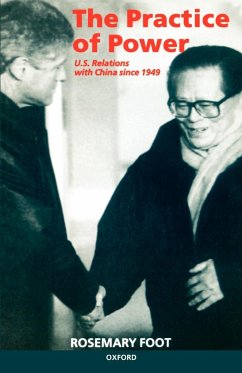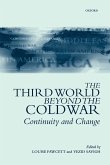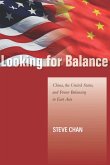The author argues that previous explantions of American relations with China have dwelt too single-mindedly on ideas associated with the strategic triangle and that instead we need to embed our understanding of the evolution of American relations with China within a wider structure of relationships at the global and domestic level.
In its careful reconstruction of evolving US positions on key issues in the relationship with China, this book is able to explain the change in American-Chinese relations after 1949 from hostility to rapprochement, and to the full normalization of ties in 1979. The author goes on to examine the relationship after normalization, a period when the United States has come to view China as less of a challenge, but still resistant to certain of the norms of the current international order. The book begins by examining US efforts to build, and then maintain an international and domestic consensus behind its China policy, and its notes the steady erosion of support in both policy arenas. It then looks at changing US perceptions of China's capabilities, and shows how US officials came to have a deeper appreciation of the overall restraints on Beijing's power, especially as a result of the Sino-Soviet rift and the failure of policies associated with the Great Leap Forward. Finally, it examines the effects on the relationship of China's fuller exposure after 1979 to the ideas and values that predominate in the global system.
In its careful reconstruction of evolving US positions on key issues in the relationship with China, this book is able to explain the change in American-Chinese relations after 1949 from hostility to rapprochement, and to the full normalization of ties in 1979. The author goes on to examine the relationship after normalization, a period when the United States has come to view China as less of a challenge, but still resistant to certain of the norms of the current international order. The book begins by examining US efforts to build, and then maintain an international and domestic consensus behind its China policy, and its notes the steady erosion of support in both policy arenas. It then looks at changing US perceptions of China's capabilities, and shows how US officials came to have a deeper appreciation of the overall restraints on Beijing's power, especially as a result of the Sino-Soviet rift and the failure of policies associated with the Great Leap Forward. Finally, it examines the effects on the relationship of China's fuller exposure after 1979 to the ideas and values that predominate in the global system.








